The US and Europe have declared war on Chinese electric vehicle brands – and Australians could wind up big winners
A growing list of Chinese car brands are racing to topple Tesla from the top of the electric vehicle table – and Australia is ground zero.
Motoring News
Don't miss out on the headlines from Motoring News. Followed categories will be added to My News.
The United States and Europe have declared war on Chinese electric vehicle brands, imposing hefty taxes to prevent a “flood” of vehicles and protect their respective automotive markets.
But Australia is highly unlikely to follow suit, instead swinging the door open to a growing list of new eco-friendly and Beijing-backed players Down Under.
Scott Dwyer, research director at the Institute for Sustainable Futures at the University of Technology Sydney, said our market is proving increasingly attractive for Chinese brands.
“Chinese EV brands are facing reduced consumer spending post-pandemic among Chinese consumers, increased competition in the country among the vast number of manufacturers they have, and now trade tariffs implemented by the EU and the US,” Dr Dwyer said.
“Australia starts to look totally different. We don’t have trade restrictions, we’ve implemented a number of policies and incentives to encourage EV take-up, and demand is rising.
“We’re a pretty attractive market, particularly for Chinese companies looking to expand. It’s a good opportunity to pivot from EU and US markets.”
Australia takes centre stage
US electric giant Tesla, owned by billionaire Elon Musk, enjoyed a near-total market domination in Australia for several years.
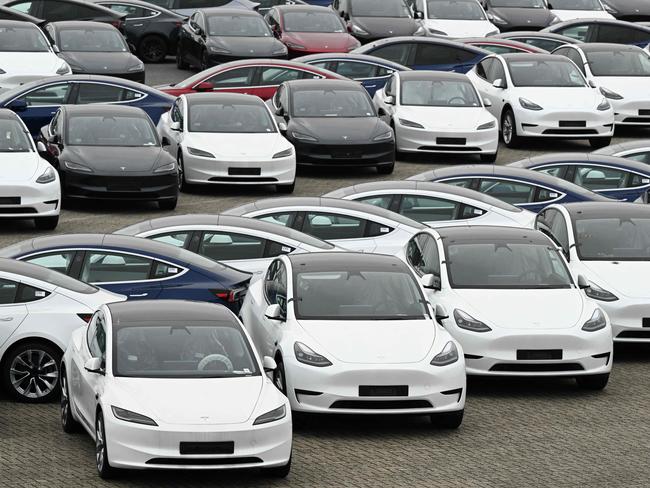
Competition has ramped up more recently, thanks in large part to an influx of Chinese brands.
“Sales have been increasing across the board, there are more models coming, there are more affordable models coming as well, and Australia has a new vehicle emissions standard coming into effect soon,” Dr Dwyer said.
BYD has had a successful entry into the Australian market, with solid take-up of its vehicles, and is rolling out two new SUVs and a ute this year, taking its local offering to six.
David Smitherman, CEO of EVDirect, which distributes BYD in Australia, said “the opportunity is very clear”.
“We need to now get into the mainstream market because we’ve sold to the early adopters and the passionate EV purchasers,” Mr Smitherman told Reuters.
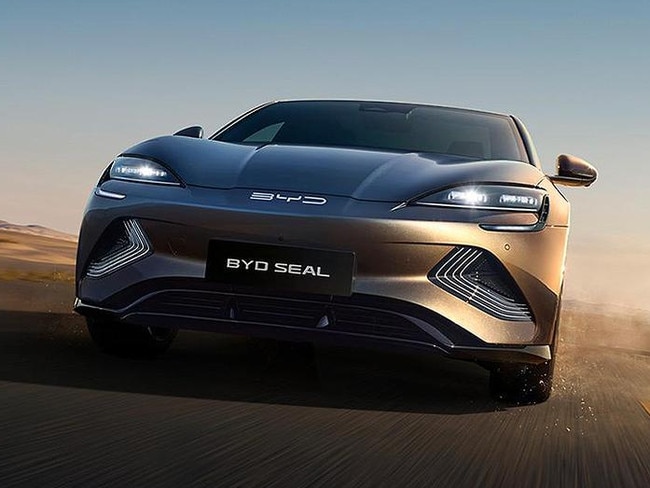
Another giant in China, SAIC, which is owned by the Chinese Communist Party, will launch new cars under the MG brand here in 2024 – the plug-in hybrid MG3 and the electric Cyberstar sports car.
A slew of other brands are preparing to begin their assault on Australia.
XPeng is a Chinese EV start-up that recently announced plans to bring its mid-sized SUV, the G6, to Australia later this year.
It has been billed as a direct rival for Tesla’s popular Model Y with a range of high-end features.
TrueEV, which will be the exclusive distributor in Australia, said the “highly intelligent, stylish and technologically advanced vehicle … will accelerate the adoption of EVs” locally.
According to motoring website carsales.com.au, Chinese automotive giant Geely is preparing to launch its own brand here in the middle of next year with the plug-in hybrid mid-sized SUV Galaxy L7.
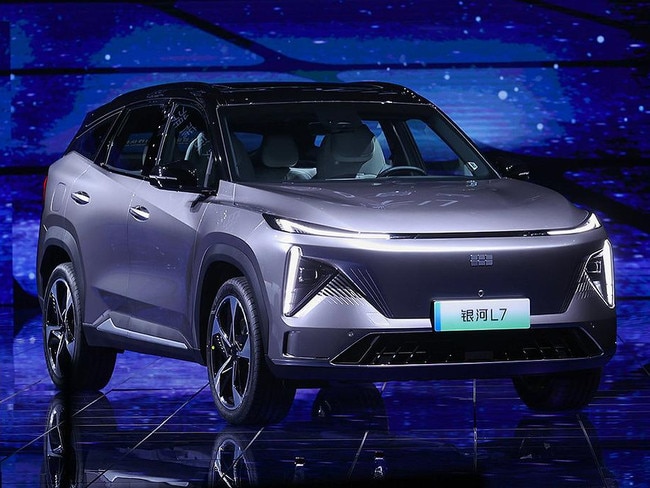
The Galaxy E5 all-electric car, also a mid-sized SUV, is also expected to arrive in the middle of 2025.
Leapmotor will launch in Australia at the end of the year with an electric mid-sized SUV dubbed C10, followed by the T03 micro-EV.
And carsales.com.au reported Changan is eyeing an entry into the Australian market with its hybrid Deepal G318, seen as a rival to the Toyota Prado.
A spokesperson for the Federal Chamber of Automatic Industries (FCAI) said competition in the car market should be supported.
That includes an “increased presence of Chinese-produced vehicles” that will “ultimately benefit Australian consumers with more choice and more competitive prices”.
Growing demand for EVs
The new car market is experiencing something of a boom here, with sales recording a new high in May of 111,099 in a single month.
And almost one-in-four of those were either electric or hybrid vehicles, showing the growing appetitive among consumers for a set of wheels that’s environmentally astute.
Data from the FCAI showed hybrid and plug-in hybrid cars comprised 15.8 per cent of all sales, double the share recorded in the same month last year.
Some 66,000 hybrid vehicles have been sold in the first five months of 2024.
Battery EVs saw a slight increase in sales in May, taking an 8.1 per cent share of all new car purchases, up from 7.7 per cent year-on-year.
More than 44,000 EVs have been sold so far in 2024.
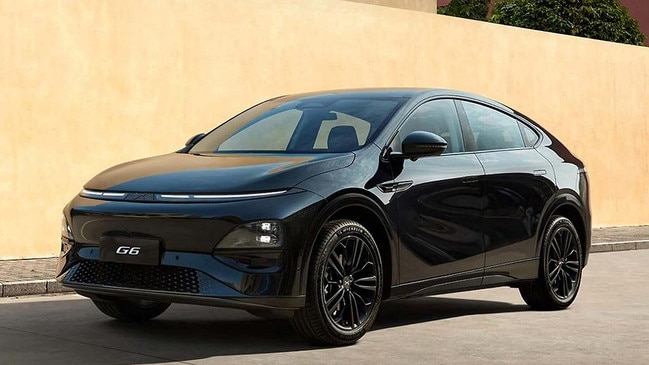
According to the Electric Vehicle Council, there are more than 180,000 EVs on Australian roads, with a whopping 98,000 of them sold in 2023.
Tesla remains the most popular EV brand in Australia, selling 3587 cars in May, which was down on the 4476 sold in the same month in 2023. Fierce rival BYD found 1914 local buyers in May, up 32 per cent on last year’s figures.
However, in January, BYD outsold Tesla for the very first time, albeit narrowly by 200.
The race between the two has been much closer at a global level.
BYD sold 525,409 EVs across all markets in the final quarter of 2024, beating US giant Tesla’s 484,507 cars to become the world’s biggest electric car company in that period.
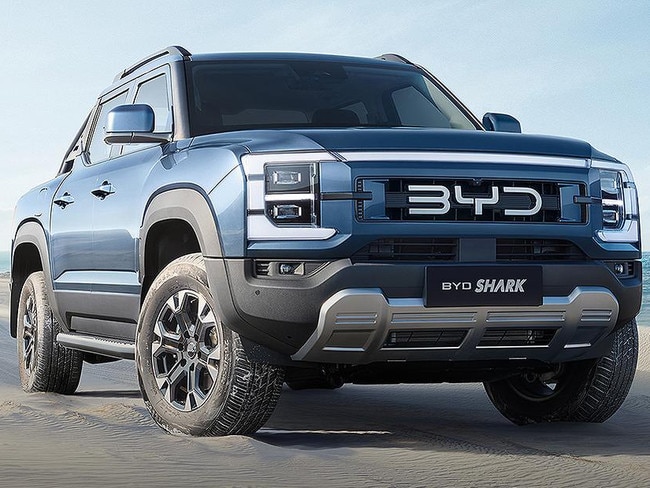
The FCAI said the surge in Chinese EVs in Australia over recent years can be point down to a few key factors.
“Increased competition has ensured Australians have access to a diverse range of vehicles that meet their varied lifestyles, needs and price points,” the FCAI spokesperson said.
“The availability of Chinese-produced vehicles has enhanced consumer choice, allowing Australians to purchase cars that best fit their work, recreation, and family requirements.
“Chinese-produced vehicles also often come equipped with the latest advancements in engine technology, safety features, and advanced driving, navigation, and entertainment systems.”
The Australian market is one of the most open and competitive in the world, the spokesperson said.
“Vehicles from various countries, including China, must meet our regulatory standards. This ensures that all vehicles, regardless of their origin, comply with Australia’s high safety and environmental standards.
“Looking ahead, the key priorities for the industry include continuing to provide Australians with choice, innovation, and environmentally friendly options. This includes promoting advancements in vehicle technology, such as electric and hybrid engines.”
Crackdown in the US and Europe
The US Government has quadrupled import tariffs on Chinese auto brands from 25 per cent to 100 per cent, effectively doubling the cost of an EV.
President Joe Biden said generous incentives awarded by the Chinese Government to its automakers, allowing them to slash prices in the US, didn’t just pose a threat to competition – but to national security.
Mr Biden pledged to prevent China from “flooding” the American car market with its vehicles.
“I am not going to let that happen on my watch,” he told reporters.
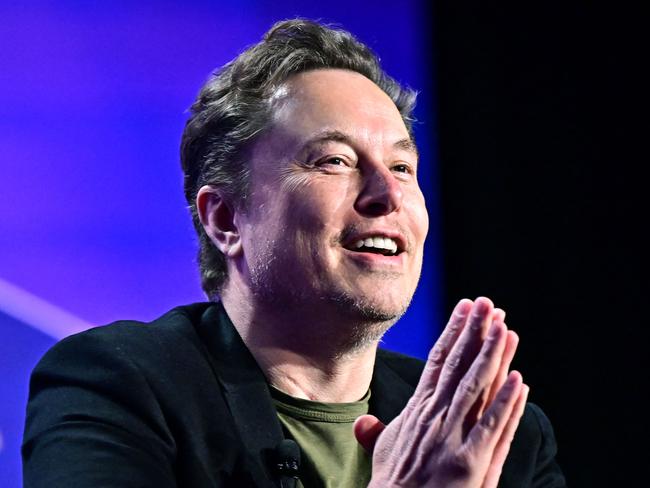
The EU followed suit, albeit not quite as harshly, and announced a new scale of tariffs to address what it characterised as China’s market-distorting subsidies.
Three of China’s biggest players will be subject to individual tax rates – SAIC will pay 38.1 per cent, Geely will pay 20 per cent, and BYD will pay 17.4 per cent.
SAIC owns formerly British brand MG, while Geely owns Polestar, Volvo and Lotus.
Imported EVs were already subject to a 10 per cent duty.
Across the EU, Chinese-made EVs had been selling for about 20 per cent less than models made on the continent.
Last year, EVs from China comprised 8.2 per cent of the total EU market in 2023 – up sharply from just 0.5 per cent in 2019.
Heavy subsidies offered by the Chinese Government to homegrown brands mean they can undercut European automakers on price, which EU politicians feared would see market share seized.
Those trade manoeuvres are designed to slow the rapid uptake of Chinese EVs, but Australian advocates say Europe and America’s loss will be our gain.
Challenges ahead
BYD has flagged its intentions to dominate the Australian market and set a loft goal of becoming the most popular brand here.
“The expansion plans have been under discussion for many months and confirmed on the back of the recent successful launches of the BYD Dolphin and Seal,“ a spokesperson for the company’s local arm said in a statement.
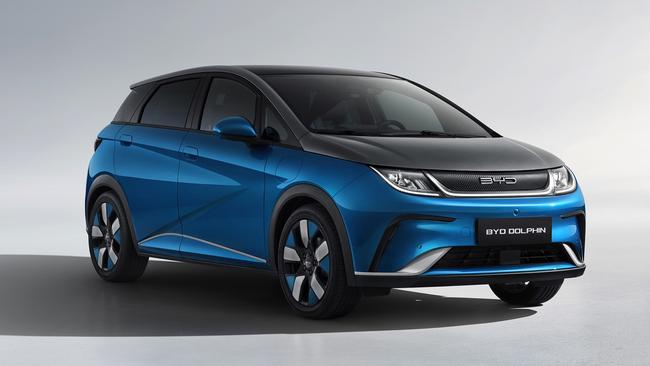
But Dr Dwyer said the success of EVs in Australia shouldn’t be taken for granted.
“There is still a risk that the EV market here plateaus and slows down, as we’ve seen in more developed markets,” he said.
“The challenge with that will be making sure Australia’s rollout of charging infrastructure really keeps pace, or goes faster than EV sales have been.
“There’s good news with the Australian Renewable Energy Agency, which has committed $500 million to a fund called the Driving the Nation, and part of that is deploying EV charging infrastructure.”
A report by the Australian Institute of International Affairs noted that an influx of Chinese brands is addressing two of the three main barriers consumers report when it comes to jumping from fuel to electric – higher prices and limited choice.
On both fronts, “the tide may be turning” thanks to more players in the market, which both improves consumer options and brings down prices.
The government’s National Electric Vehicle Strategy also helps by incentivising the take-up of EVs.
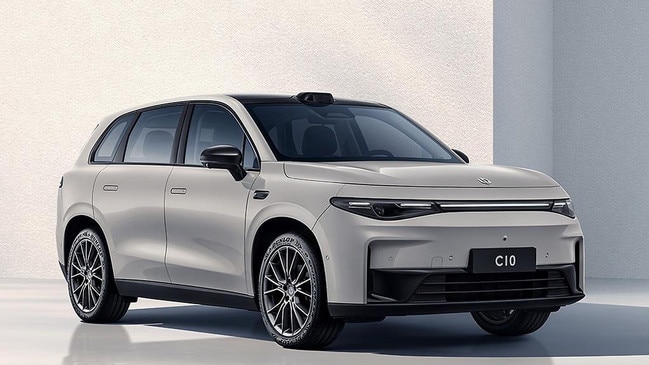
The third barrier, so-called ‘range anxiety’ sparked by the availability of public charging infrastructure, is gradually being eased thanks to mammoth investments by governments and private operators.
Despite increasingly fierce competition and rising interest in EVs and hybrids, fuel cars continue to dominate in Australia.
Large vehicles remain the car type of choice for motorists, with SUVs comprising half of all vehicles sold in May. Light vehicles, typically utes, comprised 22 per cent of the market.
In fact, three of the five top-selling cars in May were utes – the Ford Ranger, the Toyota HiLux, and the Isuzu D-Max.
Originally published as The US and Europe have declared war on Chinese electric vehicle brands – and Australians could wind up big winners



